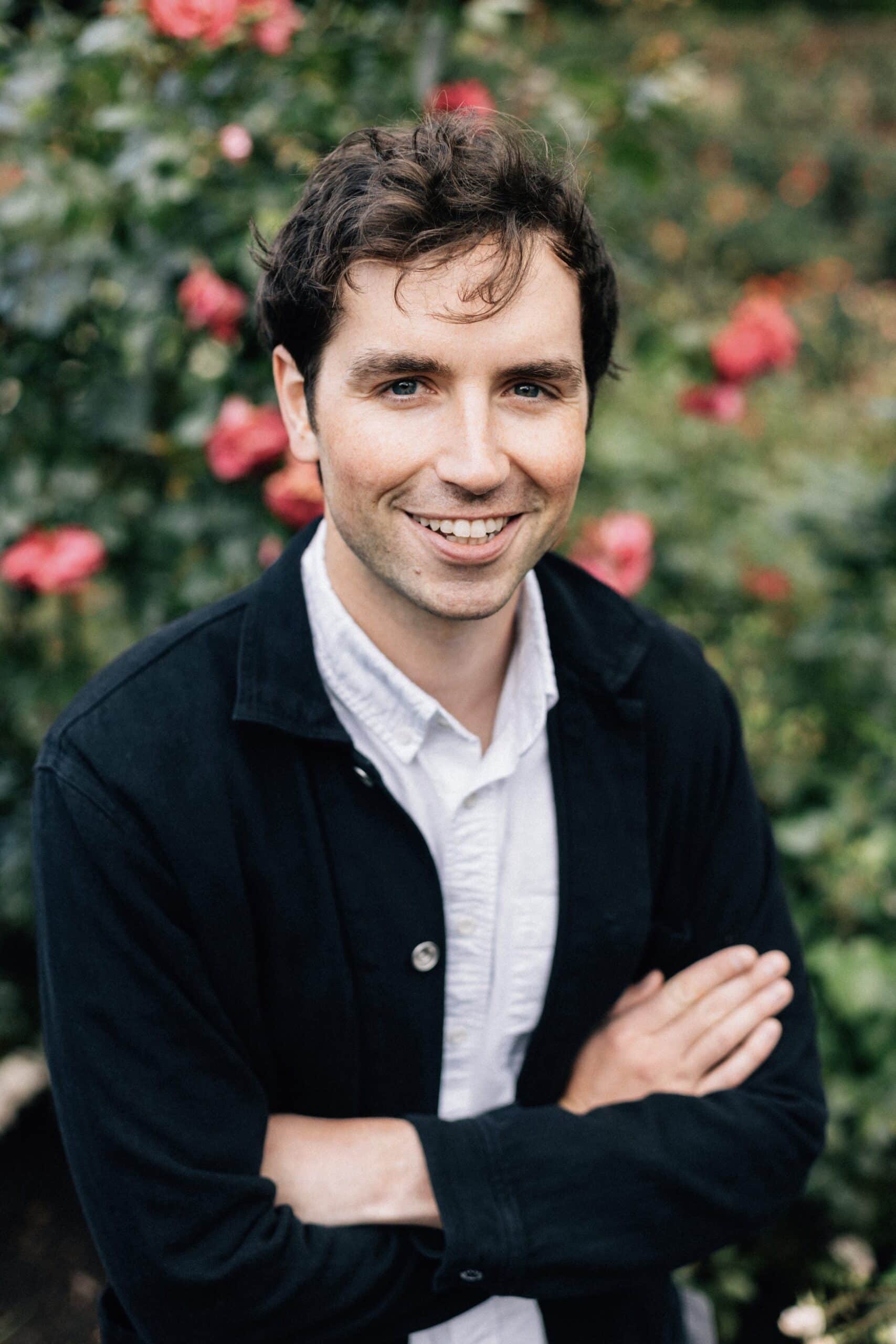
Fellowships for professional journalists are a great way to expand your network, grow your skillset, and build your career in the industry. Todd Van Luling would know — he’s won several. Using the free ProFellow database to find opportunities, Todd used fellowships to fill knowledge gaps and get his foot in the door at his dream publication.
Todd has written for Buzzfeed, HuffPost, and Monocle Magazine, and is currently contracting as a podcast producer for the Financial Times. He is a past recipient of the Kiplinger Fellowship in Public Affairs Journalism and the FT Talent Challenge, among other journalism-related fellowships. He is also currently on the roster for the Fulbright Specialist Program.
Read on to learn more about Todd’s professional journey and his tips for how other journalists can find and win fully-funded professional development opportunities.
1. Tell us about your professional journey and how fellowships helped pave the way for your success.
My first “big break” happened when I was a freshman in college killing time on the internet. I happened to be one of the early readers of BuzzFeed back in 2009 and then began contributing to the site in between classes. At the time, writing for BuzzFeed was very straightforward and involved aggregating viral videos and posting cat pictures for free. I eventually interned there, which helped me get an internship with HuffPost (then called The Huffington Post), which led to a staff position for about eight years.
At the time, I thought I must be incredibly talented at writing because my articles would get millions of pageviews. This was naive. When Google and Facebook changed their algorithms to downplay viral content from publishers, the millions of casual readers disappeared and there weren’t many true fans left for these publications. I began taking writing classes on the side and quickly realized how much I had to learn. I’d never heard of basic writing tips such as using “action verbs” versus “to be” verbs. It was a sobering but exciting experience. While my job would pay for a few classes a year with a tuition credit, I realized I was becoming a voracious learner and needed to find more ways to become a student. As many have realized, tuition is extremely expensive, so I began pursuing fellowships as a means to learn more.
ProFellow was an invaluable resource in this journey. To be honest, I didn’t really understand what fellowships were or how many variations of fellowships are out there until stumbling across the website. While many fellowships require huge time commitments for little to no pay and aren’t accessible without another source of income, there are also opportunities that last a matter of days. These jam-packed, high-intensity programs are a wonderful way to get exposure to A+ experts and topics you likely would have missed or failed to understand otherwise. I owe much of my educational journey to a string of small fellowship and fellowship-like opportunities that gave me access to people and subjects I wouldn’t have come across with independent research alone.
2. How did you find and successfully apply for fellowships? What skills did you gain that allowed you to build your career in the industry?
I found the Kiplinger Fellowship in Public Affairs Journalism through ProFellow. This was the first fellowship opportunity I received and I remember how good it felt to open the acceptance email. I had no idea what to expect from a fellowship opportunity, so it was invaluable to have ProFellow’s guidance.
After the Kiplinger acceptance, I began searching for similar opportunities. Many fellowships are not actively advertised, and in addition to the ProFellow database, if you Google a brand name you respect plus variations of the word “fellowship,” you can find some pretty interesting opportunities. This is how I found the FT Talent Challenge. The Financial Times was/is my favorite news publication, and I wanted to see if they had any opportunities along these lines. They had just started this new global competition for students, recent graduates, and entrepreneurs, so I applied and it worked out.
Both the Kiplinger fellowship and the FT opportunity were affected by the pandemic and ultimately were virtual opportunities. This made fitting the events into a full-time work schedule much easier, but I imagine I missed out on the networking and exposure-related knowledge that come from in-person gatherings.
Still, these opportunities and other similar ones I’ve completed have been eye-opening in terms of the immense talent that’s brought together. It’s a humbling experience seeing people at the top of their fields give presentations, and not just in terms of the content itself. The way deks look, the mannerisms, the clothes – these are all unexpected things you learn about. Sometimes in life, you randomly meet someone who is extremely at the top of their game and you’re thrown into the conversational deep end just trying to keep up while mostly just being in awe. Mini-fellowships can give this experience in highly concentrated doses.
3. What inspired you to apply for the Fulbright Specialist Program? How might this program benefit other professional journalists?
I was not a great student during my undergraduate years (see above about spending my time aggregating cat photos). At the time, I had never even heard of prestigious fellowship opportunities such as the more traditional Fulbright Award. As I’ve become a student again over the last few years (I’m finishing an MBA this year), I finally learned about these opportunities and started to understand what I’d missed.
ProFellow writes often about the Fulbright application process, which started exposing me to the mission of the program. The site eventually highlighted The Fulbright Specialist Program, which intrigued me, as this opportunity is designed for working professionals. I realized I hadn’t necessarily missed my Fulbright window.
I applied for the business administration track to go along with my most recent studies. In more “typical” times, accepted candidates are put on the roster for three years to be matched with an international project over that period. Given the ongoing pandemic, the program added a fourth year as there are fewer potential projects at the moment.
ProFellow Tip: Learn everything you need to know about the Fulbright Specialist Program in our interview with Senior Outreach Officer Amirah Nelson.
I’m ecstatic about the opportunity to potentially teach overseas as part of this project and hope to be matched soon. The Fulbright Specialist program also offers tracks in journalism (and many other subjects), so this is an opportunity more people should consider. I’ve taught a few journalism-related classes and always felt as if I learned the subjects more deeply after these experiences. Teaching and having to concretely put your “knowledge” into a lesson plan has a way of naturally clarifying things and rooting out inconsistencies. I’m excited to begin this process with Fulbright.
4. What advice do you have for other journalists about how to find and win competitive fellowship opportunities?
One fellowship opportunity seems to lead to another and another. This is both in terms of the natural energy you get to keep applying once you realize the experience is worthwhile and the fact that screeners for these opportunities want to see past “success.”
ProFellow is the best resource I’ve found for hearing about these opportunities, particularly their weekly roundup for upcoming application deadlines.
Understand your success rate will likely be low (hundreds of people often apply for opportunities that only have a handful of spots) but keep applying and you’ll likely get a hit. Then you can use the existence of that hit in future applications and your success rate will be a little bit higher. It took me a couple of years before I had my first hit, but then it snowballed quickly from there.
Related upskilling can also be incredibly valuable to help applications – mention you’ve read a few relevant books or taken a truly great MOOC on the subject. Just always be voraciously learning and express exactly how the fellowship will help you keep doing so. Things will start falling into place from there.
Todd Van Luling is a writer and part-time MBA student. He’s currently a contract
Inspired by Todd’s advice? Check out 40 Journalism Fellowships for Experienced Journalists and Recent Graduates.